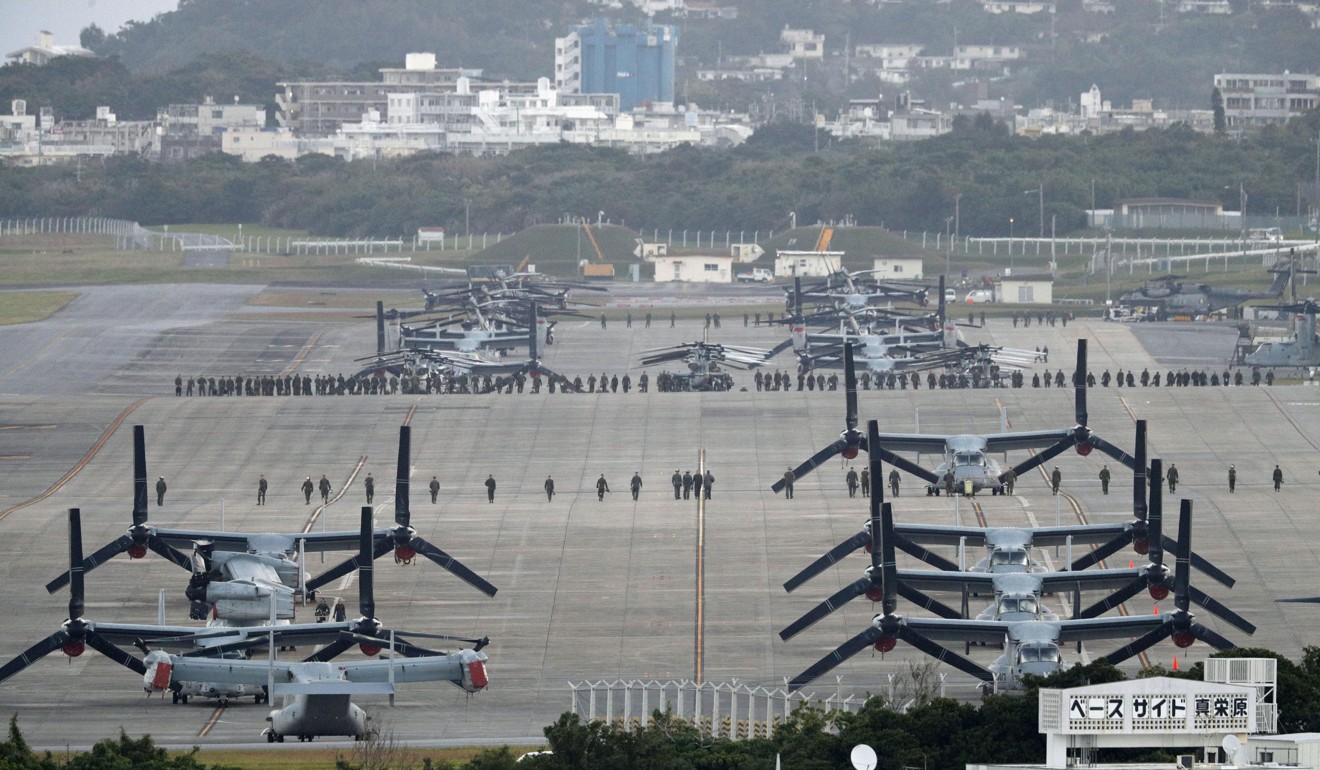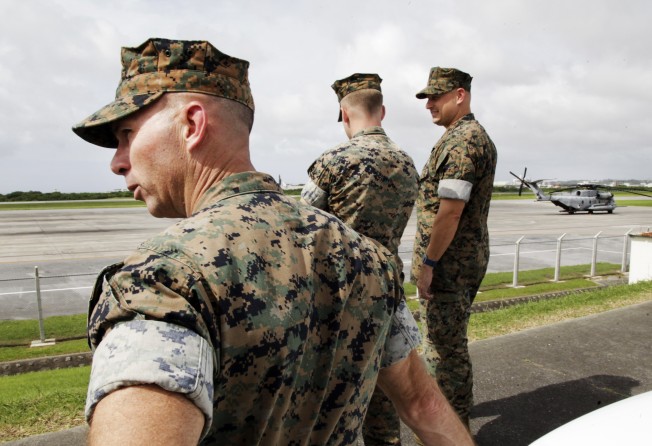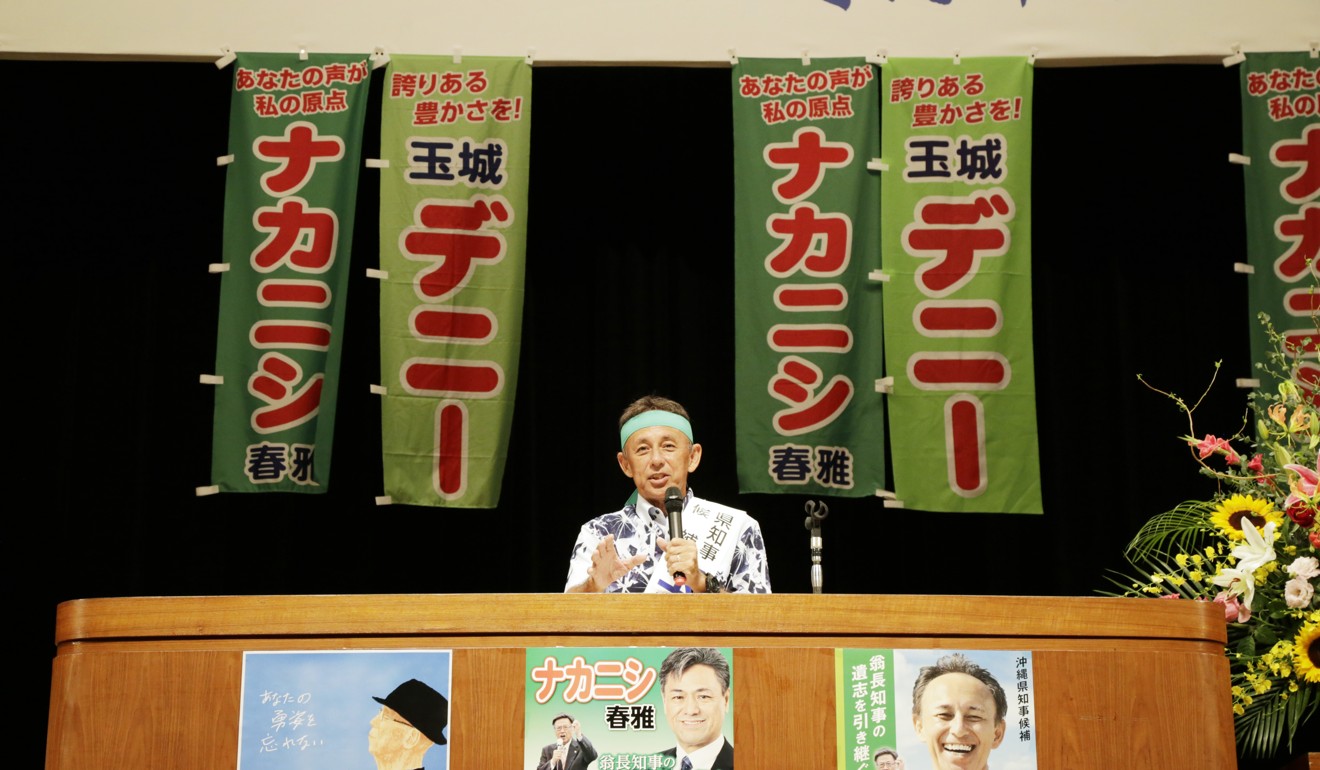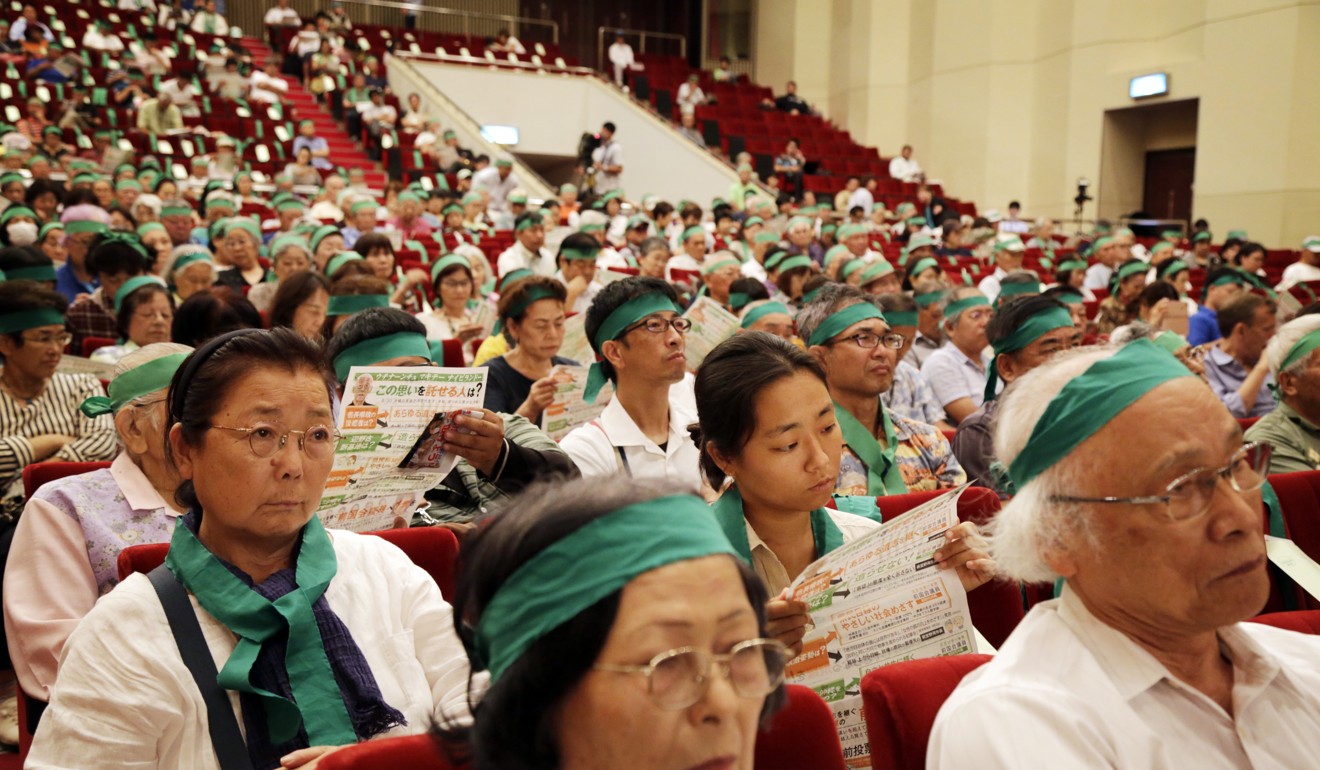
Whatever the result in Okinawa election, US troops are there to stay
The Pentagon says its sprawling installation are vital not only for the defence of Japan but also for keeping the peace and projecting American power through the entire region. But local resentment has been bubbling for decades

It’s election time on the Japanese island of Okinawa, and – as always – the presence of US military bases is centre stage.
“Give the children of Okinawa back their blue sky,” the leading candidate for the governor’s job, Denny Tamaki, told an election rally this week, vowing to significantly reduce the presence of US troops if he wins.
“We will regain peace for the people of Okinawa.”
This semi-tropical island is home to around 19,000 US Marines as well as the largest US Air Force base in the Asia-Pacific.
The sprawling installations, the Pentagon says, are vital not only for the defence of Japan but also for keeping the peace and projecting American power through the entire region.
But local resentment has been bubbling for decades.
The American military is the main election issue, polls show. And Tamaki is the narrow favourite to become Okinawa’s new governor in Sunday’s vote.
That outcome would create another headache for the US military and more stress in the US alliance with Japan.

The Pentagon calls the alliance the “cornerstone of stability” in the Indo-Pacific region. But US President Donald Trump again asked at the UN General Assembly this week in New York if Japan, a country with a large trade surplus with the United States, was contributing enough to its own defence.
The hot topic is Marine Corps Air Station Futenma, which is surrounded by housing in the ever-expanding city of Ginowan.
There is a two-decades-old plan to relocate the base to a more remote site at Henoko in the north of the island, and move nearly half of the marines to other bases in Guam, Hawaii and Australia.
But Tamaki says that’s not good enough. Like previous Governor Takeshi Onaga, who died in office last month, he opposes the expansion of the base in Henoko and wants a more sweeping redistribution of US forces to other parts of Japan.
US bases take up nearly one-fifth of the land on Okinawa, twice the size of Guam but with more than 10 times the population, at 1.85 million people. Okinawa is home to roughly half the US military forces in Japan.
Tamaki’s conservative opponent, Atsushi Sakima, is backed by Japan’s ruling Liberal Democratic Party. He says the base relocation should go ahead, freeing up a large swathe of prime land for development.

But he also wants immediate measures to reduce the noise of low-flying aircraft, and reduce the risks of crashes or pieces of equipment falling to the ground in residential areas.
Sakima doesn’t directly mention the bases at his rallies. Instead, with LDP politicians at his side, he dangles the prospect of government subsidies and investment if Okinawa accedes to Tokyo’s wishes over the bases.
“At this important juncture, we have to move from confrontation to communication,” he said.
Business interests appear to be backing him, especially in the construction industry.
At Tamaki’s rallies, supporters are generally older, many of them retired.
Behind their views are deeper cultural, historical sentiments. It includes a feeling that this island – once the independent kingdom of Ryukyu and traded with both Japan and China – bears an unfair share of the burden of the US military presence in Japan.
Over the years several incidents fuelled outrage, notably the rape of a 12-year-old schoolgirl by three Marines in 1995.
In 2004, a helicopter crashed into a university building, which still bears the scars of the blades and burn marks as a reminder.

Last December, a window fell out of a helicopter and into the playground of an junior school. Today, those children rush into shelters every time they hear an aircraft approaching at play time.
Tokyo pays around 190 billion yen (US$1.67 billion) a year toward the cost of keeping US troops in Japan, but some critics say it could do more to promote the benefits of the US-Japan alliance.
The two main local papers in Okinawa, meanwhile, are both vehemently anti-base and never miss an opportunity to fuel indignation.
More than 90,000 signatures have been collected to petition for a referendum on the presence of U.S. bases.
Ironically, Tamaki is son of an Okinawan waitress and an American Marine, who left the island before he was born and he never met. Although he speaks little English, he has faith in its democracy to listen to his entreaties, and the will of the people of Okinawa.
“The democracy of my father’s country can’t refuse what its son is saying,” he told a rally.
The government of Japan says it has the constitutional right to decide on national security, and is determined to push ahead with the replacement base plan anyway.